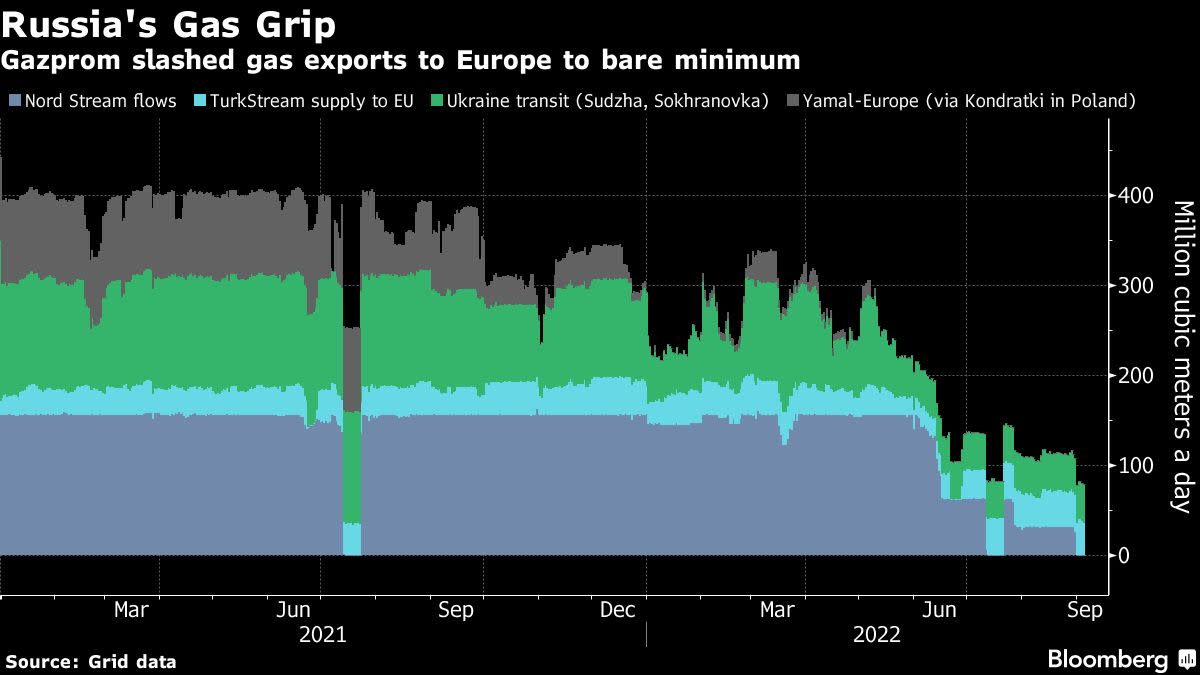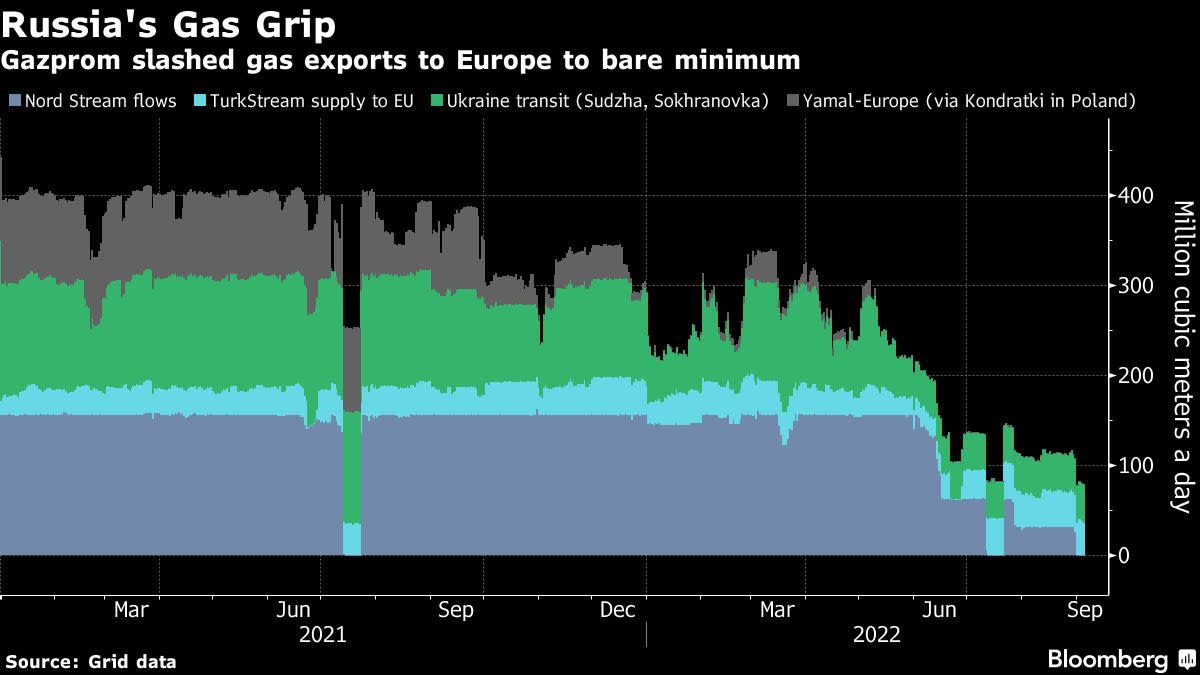
(Bloomberg) — European Commission President Ursula von der Leyen said the bloc could raise more than 140 billion euros ($140 billion) to cushion the cost-of-living blow for consumers by capping revenues from low-cost power producers.
Most Read from Bloomberg
“In our social market economy, profits are good. But in these times it is wrong to receive extraordinary record profits benefiting from war and on the back of consumers.” von der Leyen told the European Parliament on Wednesday.
The Commission proposes a cap on the revenues of companies that produce electricity at low costs — rather than expensive gas. It’s also proposing a temporary levy on fossil-fuel producers.
It’s part of a series of radical steps von der Leyen is setting out to stem the energy crisis, capping prices and reducing demand. Her proposals fire the starting gun on what are likely to be fractious discussions between member states, which have different priorities and vulnerabilities.
Von der Leyen also said:
-
The bloc will set up a European Hydrogen Bank with 3 billion euros to help “building the future market for hydrogen.”
-
The EU and Norway have agreed to set up a task force as part of efforts to lower the price of gas
-
“Reducing demand during peak hours will make supply last longer, and it will bring prices down.” Draft documents ahead of the speech showed she would propose a mandatory peak-hours reduction.
-
Commission will work with regulators to ease liquidity problems in power markets
The measures need to be signed off by member states and von der Leyen has already had to park the idea of imposing a price cap on imported Russian gas amid opposition and divisions.
But gas prices are easing from their highs — partly on the back of the bloc’s willingness to act.
Markets are also hoping for moves from European regulators to ease the strain on energy traders caused by ballooning collateral demands. The commission is in talks with financial regulators, and the European Securities and Markets Authority said on Tuesday it’s “actively considering whether, besides such supervisory monitoring, any regulatory measures are necessary.”
Several countries have already taken steps to backstop energy firms, in an effort to stop the crisis turning into a Lehman moment. Any centralized measures on liquidity are still being hashed out.
“We know that there are some strains around liquidity. We need to be able to address those with the regulators and to understand how it will work effectively,” EU financial services commissioner Mairead McGuinness said in an interview over the weekend. “We’re looking at circuit breakers as well, but again, the details are for further evolution.
Most Read from Bloomberg Businessweek
©2022 Bloomberg L.P.




